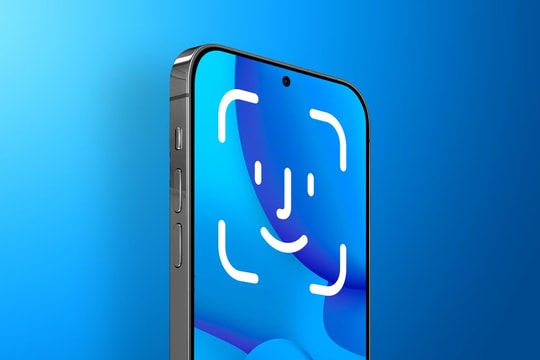Urgent warning: Apple ID is no longer safe, 2 billion users are in danger
Did you think your Apple ID was completely secure? The latest reality may shock you. A serious security threat is targeting more than 2 billion iPhone, iPad, and MacBook users worldwide.
For a long time, Apple has always been considered a highly secure technology ecosystem, making iPhone, iPad or MacBook users feel secure. However, the truth is not always like that.
Leaks of sensitive photos from dating apps on iPhones, hackers taking control of iOS devices, and even warnings from the US Federal Bureau of Investigation (FBI) about attacks on iPhones show that Apple's "security bubble" has really burst.
.jpg)
If hackers used to target Windows users, now your Apple ID has become a lucrative target. Why is that?
Apple ID: A bargain for hackers
Apple ID is a personal account that Apple provides for users to access and use services in the company's ecosystem, such as App Store, iCloud, iMessage, FaceTime, Apple Music...
With over 2 billion iPhone, iPad and MacBook users worldwide, Apple ID has become an extremely valuable asset for cybercriminals. Not only is it the "key" to all your data, accounts and personal devices, Apple ID is also tied to payment methods, making it even more attractive.
Another fact is that Apple users are generally considered to be in better financial condition, which means that bad guys can make more money by hijacking their accounts. This is the reason why cyberattacks are increasingly shifting to the Apple ecosystem.
Hackers' New Tactic: Fake Security Alerts
According to a report from security experts from Israeli cybersecurity company LayerX, an attack campaign that once only targeted Windows users has now expanded to Apple.
With increasingly tight security measures from Microsoft, Chrome, and Firefox, hackers have changed their strategy, focusing on MacBook users.

The method is not new but extremely effective, they use fake websites to display Apple security warnings, confusing users.
These messages often claim that your Apple ID is locked or has a serious security issue, asking you to sign in immediately to “restore access.” Once the user enters their account information, the hacker will have full control of their Apple ID.
iCloud Upgrade Scam: Another Trick to Watch Out For
Alongside the fake security alerts, another scam is also making the rounds: “free iCloud upgrades.” Users will receive emails or SMS messages informing them that their iCloud storage is running low and are invited to upgrade for free.
Like the previous trick, the hackers create a sense of urgency, making the victim quickly click on the link, then unwittingly give them their Apple ID information.
These phishing sites look exactly like Apple’s interface, from the logo, colors, to the way the content is displayed. Users easily fall for the trick and enter their login information without suspecting anything. Once the information is sent, the scammer can change your password, lock your account, and take over all your data.
How to protect your Apple ID?
Apple offers important advice: "If you receive an unusual email, text message, or call asking for personal information like email, phone number, password, or money, treat it as a scam."
Here are some measures to help you avoid becoming a victim of hackers:
Do not click on suspicious links:If you receive an email or text message warning you about your Apple ID, check directly in Settings on your device.
Do not give your Apple ID password to anyone:Apple never asks you to enter personal information via email or text message.
Always enable two-factor authentication (2FA):This helps protect your account even if your password is compromised.
Double check the web URL address before logging in:Apple's official website always has the format "apple.com". If the address looks unfamiliar, don't enter your login information.
Report scam:If you encounter a suspicious email or message, you can report it directly to Apple at reportphishing@apple.com.
In short, Apple ID is not as secure as many people think. With hackers shifting from Windows to Apple, iPhone, iPad and MacBook users need to be more vigilant than ever.
By understanding the scams and taking the necessary security measures, you can protect your account from unnecessary risks. Also, share this article to help your friends and family not fall victim to increasingly sophisticated scams.


.jpg)

.jpg)

